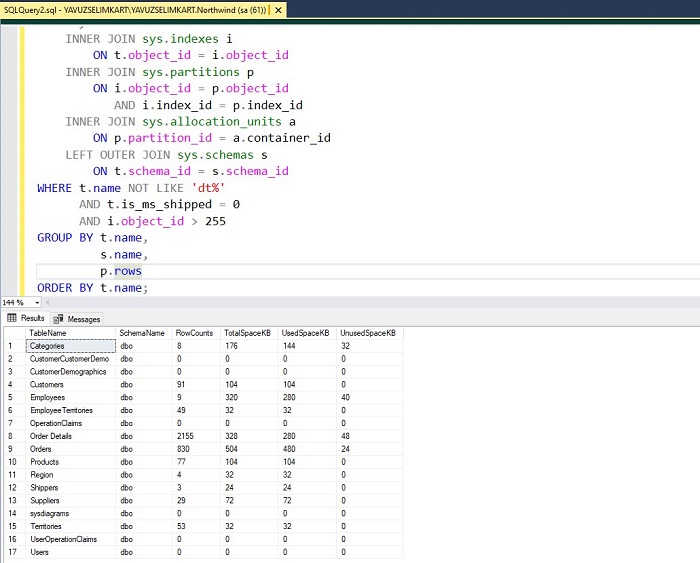Physical Dimensions of Tables in SQL Server

Hello everyone,
In this article, I will try to give information about the physical dimensions of Tables in SQL Server.
In SQL Server, in some cases, you may want to learn the physical size information of the tables.
You can easily do this by using the query below.
SELECT t.name AS TableName,
s.name AS SchemaName,
p.rows AS RowCounts,
SUM(a.total_pages) * 8 AS TotalSpaceKB,
SUM(a.used_pages) * 8 AS UsedSpaceKB,
(SUM(a.total_pages) - SUM(a.used_pages)) * 8 AS UnusedSpaceKB
FROM sys.tables t
INNER JOIN sys.indexes i
ON t.object_id = i.object_id
INNER JOIN sys.partitions p
ON i.object_id = p.object_id
AND i.index_id = p.index_id
INNER JOIN sys.allocation_units a
ON p.partition_id = a.container_id
LEFT OUTER JOIN sys.schemas s
ON t.schema_id = s.schema_id
WHERE t.name NOT LIKE 'dt%'
AND t.is_ms_shipped = 0
AND i.object_id > 255
GROUP BY t.name,
s.name,
p.rows
ORDER BY t.name;When you run the above query, you will see a result similar to the one below.

As can be seen, we have seen the physical dimension information of the tables.
Good luck to everyone in business and life.


